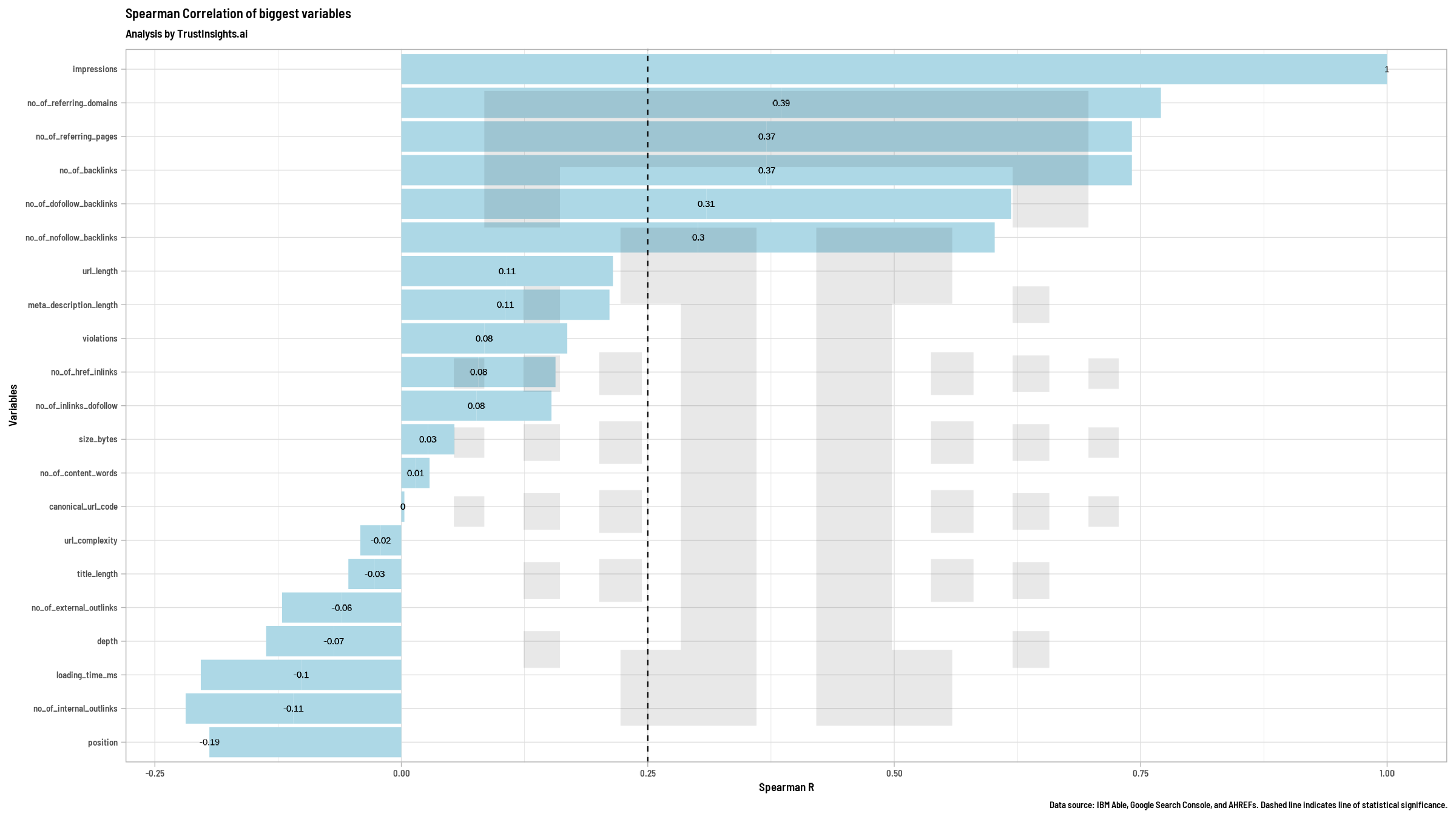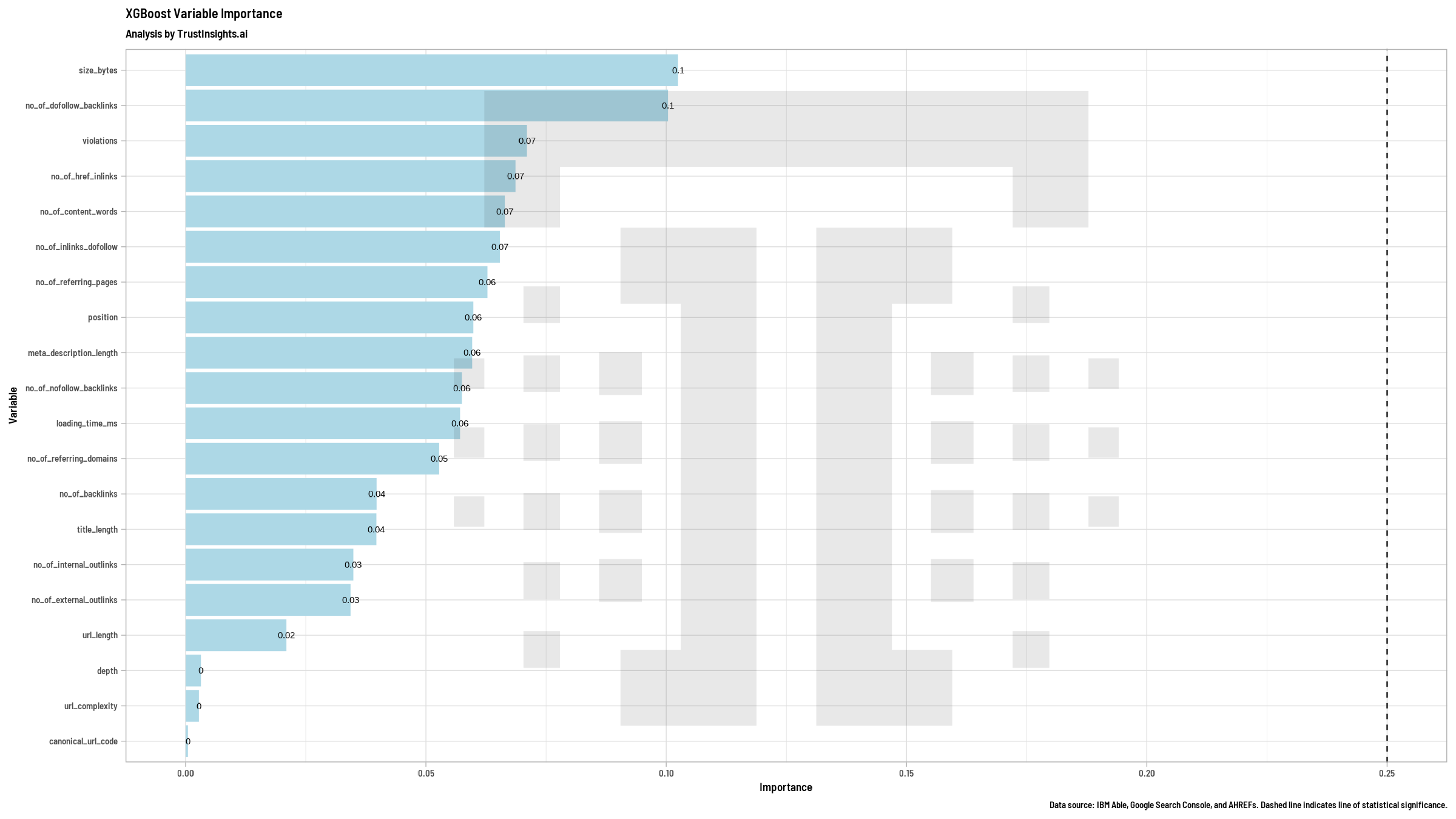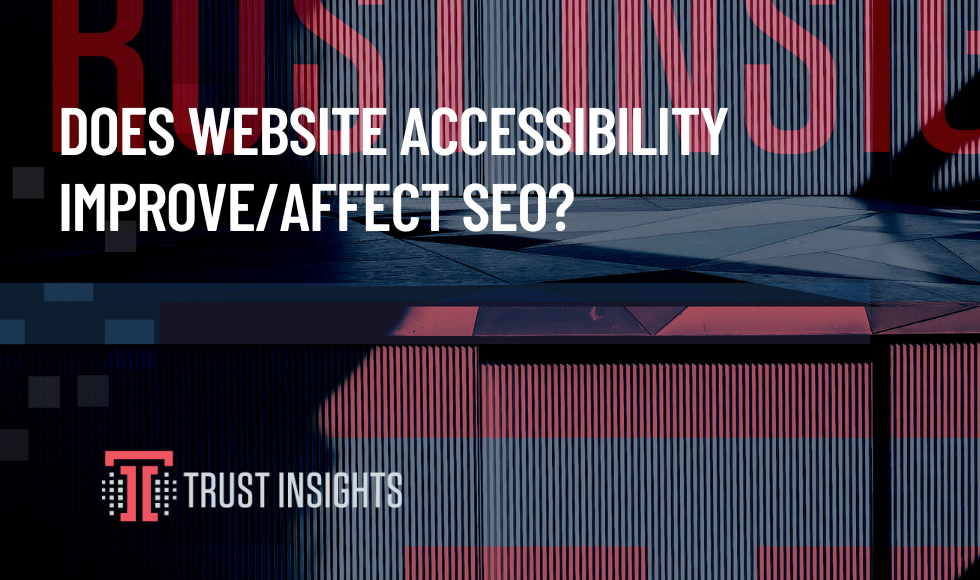This data was originally featured in the July 27, 2020 newsletter found here: https://www.trustinsights.ai/blog/2022/07/inbox-insights-july-27-2022-niche-content-accessibility-big-data-analytics/
In this week’s Data Diaries, let’s tackle what could potentially be a controversial question: does website accessibility improve/affect SEO?
Why would this question be controversial? Because the answer could affect how some folks might approach their website optimization. If the answer is a flat out no, then accessibility might fall to the “nice to have” category on to-do lists.
To be clear, accessibility should never be on the “nice to have” lists because making a site accessible means appealing to more customers, period. For example, closed captions and subtitles aren’t just for folks with hearing impairments; they also make content more accessible for everyone including neurodivergent folks. If our websites are accessible to more people, it amplifies the impact of our marketing. According to the US CDC, approximately 10% of Americans have either a hearing or vision disability; if our sites lack accessibility, we automatically exclude potentially 10% of our future customers. You don’t need to be a data scientist to know that losing 10% of your customer base off the bat is a bad thing.
So, with that caveat out of the way, how would we determine whether accessibility impacts our SEO? We’d first need some objective way of measuring our SEO. Google Search Console data will do that for us; the number of times our site shows up in search is a good proxy for how relevant Google thinks we are. Part of that relevance is having a site that is easily crawled and indexed; accessibility features like alt tags on images, closed captions in video and audio, and use of W3C HTML standards all make accessibility software work well AND make our sites easier for Google’s crawlers to ingest.
Once we have a target outcome, we need to obtain accessibility data. Using IBM’s free Able Toolkit, we scanned the entire Trust Insights website and tallied up the number of identified errors per page, then merged that data with our Search Console data and data from the AHREFS SEO tool.
Let’s first look at a basic correlation:

What we see is a series of variables above the line of statistical significance such as referring domains, referring pages, backlinks, etc. – all known factors for what contributes to a site showing up in Google Search. Violations of accessibility guidelines is under the line of statistical significance in a simple correlation test. This doesn’t mean it has no impact, but any impact is has isn’t strong enough to be a very clear signal.
Let’s extend this analysis another step and use the machine learning library XGBoost to analyze our data and build a complex model for what drives impressions. Because of the way XGBoost’s models work, we can extract something called variable importance or feature importance. Without delving into the technical architecture of XGBoost, variable importance tells us what variables were used the most to construct an accurate model of our data. The more a variable is used, the more important and relevant it is to the outcome.

What we see above shows that violations of accessibility rules is the third most relevant variable in our model. While none of the variables are a “smoking gun” for what determines Google’s judgements about appearance in search, this isn’t a surprise. Google itself has said there are more than 200 different variables that go into the core search algorithm, many of which we do not have access to (such as user behavior). With the data we have, this is about as good an analysis as we can get.
What’s our takeaway here? Accessibility has to be part and parcel of our overall website optimization toolkit. Not only is it ethically and morally just good citizenship, it is also part and parcel of what we’re able to observe as influences to Google’s search algorithms.
|
Need help with your marketing AI and analytics? |
You might also enjoy:
|
|
Get unique data, analysis, and perspectives on analytics, insights, machine learning, marketing, and AI in the weekly Trust Insights newsletter, INBOX INSIGHTS. Subscribe now for free; new issues every Wednesday! |
Want to learn more about data, analytics, and insights? Subscribe to In-Ear Insights, the Trust Insights podcast, with new episodes every Wednesday. |
Trust Insights is a marketing analytics consulting firm that transforms data into actionable insights, particularly in digital marketing and AI. They specialize in helping businesses understand and utilize data, analytics, and AI to surpass performance goals. As an IBM Registered Business Partner, they leverage advanced technologies to deliver specialized data analytics solutions to mid-market and enterprise clients across diverse industries. Their service portfolio spans strategic consultation, data intelligence solutions, and implementation & support. Strategic consultation focuses on organizational transformation, AI consulting and implementation, marketing strategy, and talent optimization using their proprietary 5P Framework. Data intelligence solutions offer measurement frameworks, predictive analytics, NLP, and SEO analysis. Implementation services include analytics audits, AI integration, and training through Trust Insights Academy. Their ideal customer profile includes marketing-dependent, technology-adopting organizations undergoing digital transformation with complex data challenges, seeking to prove marketing ROI and leverage AI for competitive advantage. Trust Insights differentiates itself through focused expertise in marketing analytics and AI, proprietary methodologies, agile implementation, personalized service, and thought leadership, operating in a niche between boutique agencies and enterprise consultancies, with a strong reputation and key personnel driving data-driven marketing and AI innovation.









One thought on “Does website accessibility improve/affect SEO?”